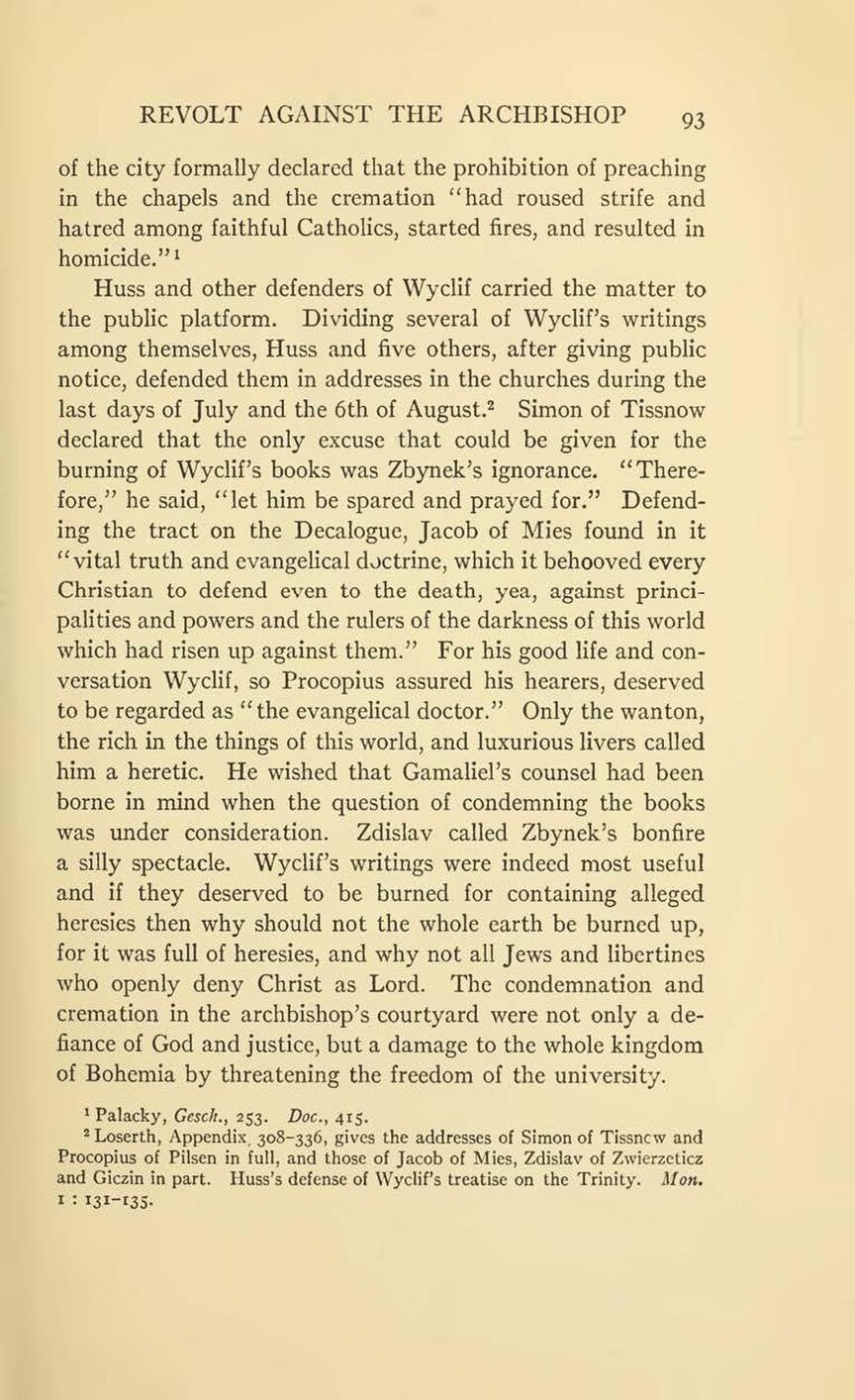of the city formally declared that the prohibition of preaching in the chapels and the cremation “had roused strife and hatred among faithful Catholics, started fires, and resulted in homicide.”[1]
Huss and other defenders of Wyclif carried the matter to the public platform. Dividing several of Wyclif’s writings among themselves. Huss and five others, after giving public notice, defended them in addresses in the churches during the last days of July and the 6th of August.[2] Simon of Tissnow declared that the only excuse that could be given for the burning of Wyclif’s books was Zbynek’s ignorance. “Therefore,” he said, let him be spared and prayed for.” Defending the tract on the Decalogue, Jacob of Mies found in it “vital truth and evangelical doctrine, which it behooved every Christian to defend even to the death, yea, against principalities and powers and the rulers of the darkness of this world which had risen up against them.” For his good life and conversation Wyclif, so Procopius assured his hearers, deserved to be regarded as “the evangelical doctor.” Only the wanton, the rich in the things of this world, and luxurious livers called him a heretic. He wished that Gamaliel’s counsel had been borne in mind when the question of condemning the books was under consideration. Zdislav called Zbynek’s bonfire a silly spectacle. Wyclif’s writings were indeed most useful and if they deserved to be burned for containing alleged heresies then why should not the whole earth be burned up, for it was full of heresies, and why not all Jews and libertines who openly deny Christ as Lord. The condemnation and cremation in the archbishop’s courtyard were not only a defiance of God and justice, but a damage to the whole kingdom of Bohemia by threatening the freedom of the university.
